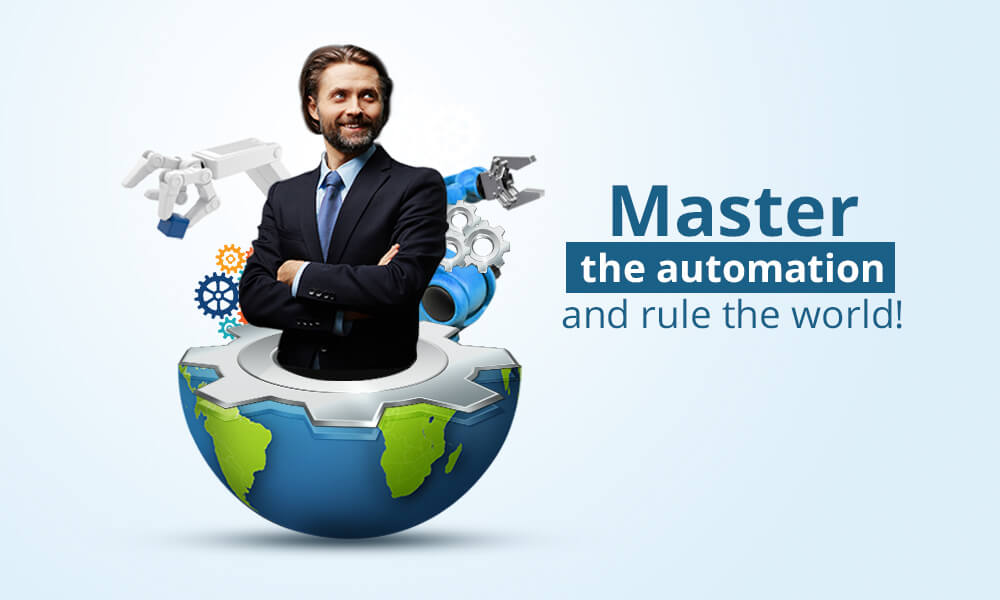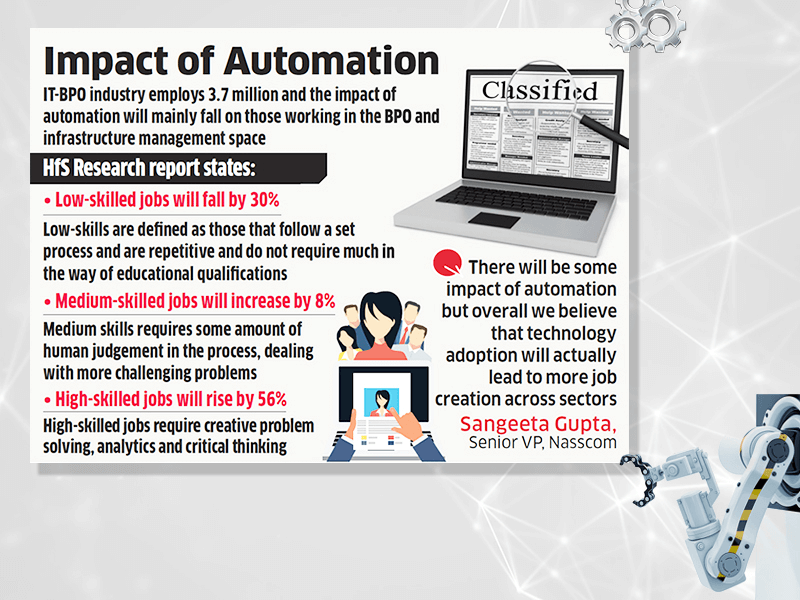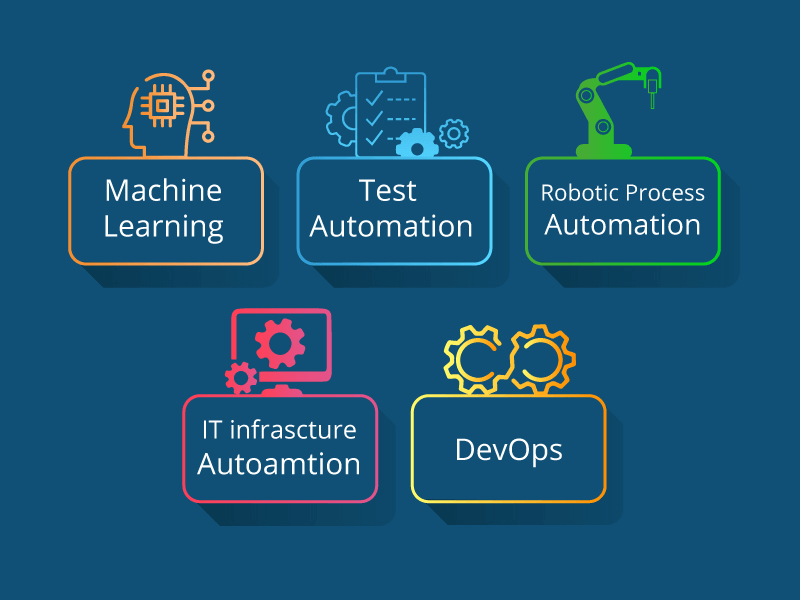

Automation is the word which is very closely connected with computers and software programs. Every software program created so far is to automate some task. Automation is an effort to convert the manual workflow of activities into automated ones. This helps the user perform the tasks quickly, with better efficiency and accuracy. This ability to make the things happen automatically or with less human intervention made the computers popular and fueled the growth of IT industry.
Since then, IT industry has traveled the progressive path from mainframes to mobile devices to smart sensor (Internet of Things), from desktop to cloud, from data records to big data, from programming to artificial intelligence and machine learning. All this is one or the other kind of automation.
Automation Boon or Ben?
Today the word ‘automation’ is viewed with a different perception. Is automation going to eat away more jobs than it can create? Some statistics published a few years back, throws light on this.

If we carefully look at the statistics, automation is threatening to take away routine and repetitive jobs. However, there would be manpower needed who will do the automation using programming, scripts and tools etc. And hence mastering automation is one of the imperatives for professionals and new job seekers. Let us look at this ‘automation’ in the era of cloud and internet of things.
Machine learning

Machine learning is a new discipline which is becoming popular. With machine learning, the machines or algorithms can learn and modify their outcome based on the input data they receive. With more and more input data, accuracy of the machine learning algorithm increases over a period of time.
When you go for shopping on portal like Amazon, its recommendation engine suggests you what next purchases you may like to do. This recommendation engine is an example of implementation of machine learning algorithm.
Robotic process automation
Robotic process automation or RPA allows organizations to automate their manual processes. You know that a business process is a sequence of steps or a workflow to be carried out to produce desired output. For example, withdrawing money from a bank involves following steps: fill the withdrawal slip, take a token, give the token to the teller and take the money. These steps are followed when one does this manually. A parallel example of a similar but automated process is use of an ATM machine to withdraw money. With ATM, no human intervention is required. RPA works in similar fashion. Robotic Process Automation(RPA) has tools like Blue Prism, UiPath, Automation Anywhere which can automate such processes for any organization.
IT Infrastructure automation
Today, provisioning of IT infrastructure is one of the top candidates for automation. Software is getting more and more complex due to public cloud, on-premise cloud, container technology, microservices, scalability requirements, elastic nature of cloud resources etc.[do not worry if all these terms are Greek to you. Technology is becoming complex. But slowly you will be able digest all of this!] Manually provisioning and installing software and maintaining its version on hundreds of different systems is a nightmare. Here the IT infrastructure automation tools will come for the rescue. Tools like Chef, Puppet, Ansible help the system administrators to handle all these complex scenarios.
Software test automation
Software test automation promises automation of testing of a software. In software development life cycle, testing is very important phase before the software is delivered to the customer. In software test automation, there are tools which can help generate test scripts automatically. This saves manual testing efforts for creation and execution of tests.
Secondly, in software, the same piece of code needs to be tested repetitively many times (called regression testing). Software can do this repeated testing job with accuracy without getting tired. Software test automation is very popular across the software development industry. There are test automation suites like Selenium, Tricentis TOSCA, Unified Functional testing, JMeter etc.
DevOps
DevOps is a new practice and philosophy which increases organization’s ability to deliver the services faster. Traditionally in software development there were separate teams like software developers, software testers and operations. In DevOps philosophy, there are no such separate teams who work in silos, but a tightly integrated team including all of them.
With DevOps, organizations have achieved thousands of new releases of software a day. This is one of great example of use of automation to develop the software itself. It calls for automation tools at every phase of software development: starting from coding, testing and deployment and even in provisioning the IT infrastructure. Popular tools one would find in this space are Github, Chef, Puppet, Ansible, ELK, Selenium etc.
Master the automation or die?
Automation is taking everything into its stride. As more and more routine tasks would be automated, people would be free to work on more important things. Cost effectiveness and Efficiency of operations would improve many-fold.

In this context, whether you want to become a software developer, software testing specialist or IT infrastructure specialist (system administrator), automation is an inevitable part of your job and work-life. Why shy away? Today, organizations are embracing automation technologies. Job seekers and professionals both have no choice but to master automation and ride on it for the bright future.
